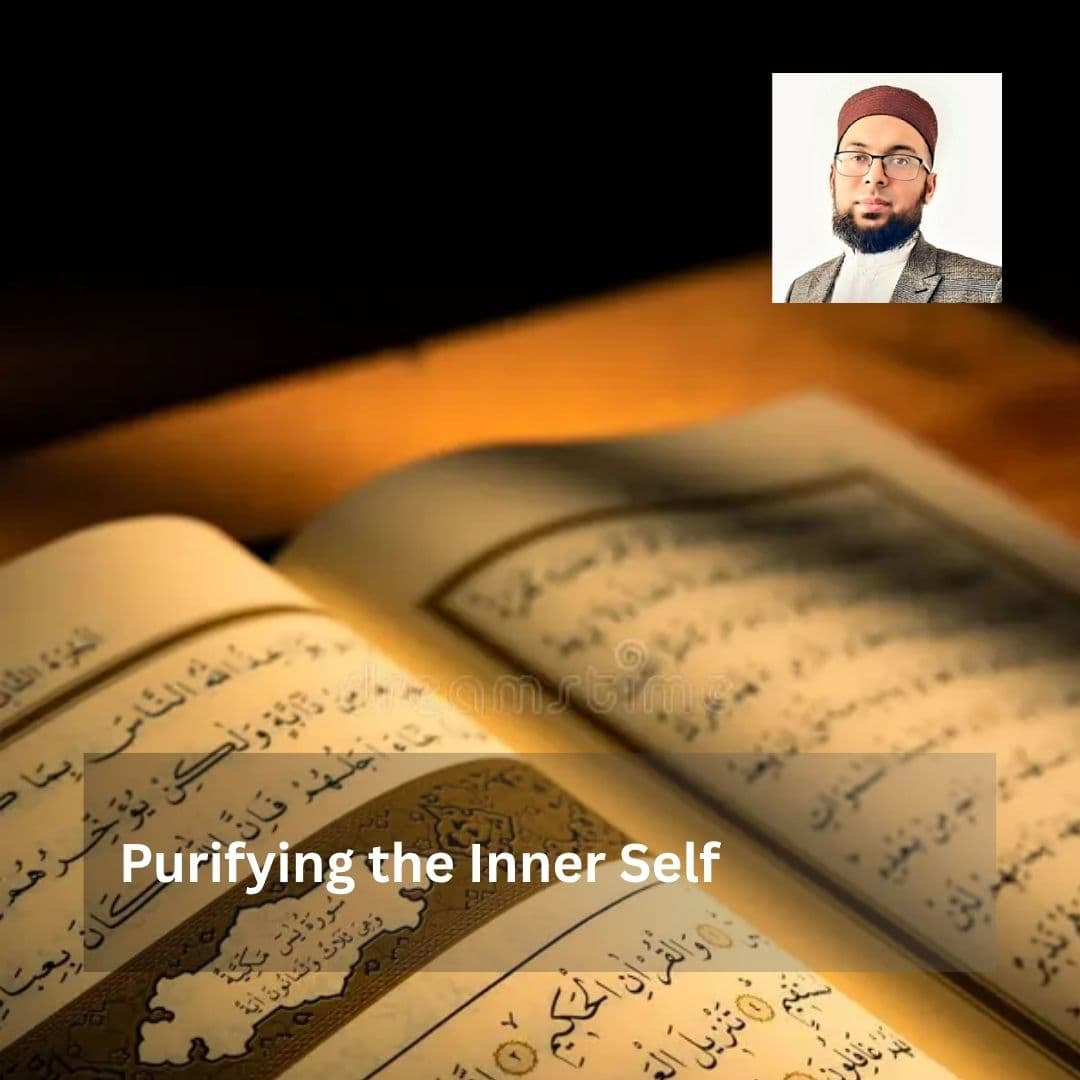MESSAGES FROM THE MINBAR

Purifying the Inner Self
Mufti Maruf Ahmed
بِسْمِ اللهِ الرَّحْمٰنِ الرَّحِيْم
Every believer knows the value of outward worship, yet the Qur’an reminds us repeatedly that the true path to success lies in cleansing the inner self; tazkiyah al-nafs. It is the active effort to purify the heart from traits that darken it and to nurture qualities that raise a person in the sight of Allah.
Allah says:
“The one who purifies the nafs (inner self) has succeeded.” (Surah Al-Shams: 9)
Success is not measured by appearance or reputation. It begins with the state of the heart.
Apparent and Hidden Deeds
A person carries out actions that are visible (zahir), and others that cannot be seen (batin). We draw closer to Allah through outward deeds such as prayer and charity, and we also draw near to Him through the acts of the heart that no one sees, like iman and loving others for His sake. In the same way, the sins we fall into can be outward, or they can be performed within the heart, such as jealousy, arrogance, hatred, and similar traits.
A person may carry out many good deeds, yet the real weight of those deeds depends on what lies inside. Pride can spoil an act of worship. Anger can cloud judgement. Envy and jealousy can destroy years worth of good deeds. It is therefore imperative that a believer works in purifying their inner self.
It is not an optional but an integral part of religion. Just as we learn how to pray and fast, we also learn how to examine ourselves with honesty.
Our Heart Needs Attention
A believer should notice the quiet signals that point to inner neglect. These may include resentment when others are praised, a quick temper, satisfaction in the faults of others, or laziness in private worship. None of these can be seen by the world, but Allah is fully aware of them.
Recognising these signs is the first step. Turning away from them, seeking forgiveness, and working to uproot them is the second.
A Balance Between the Inner and Outer
Islam does not separate the inner from the outer. A person who purifies the heart finds that their outward actions improve naturally. Prayer becomes calmer. Patience becomes easier. Worship gains meaning. This is why the scholars said that outward reform without inward work is ineffective.
Tazkiyah al-nafs shapes a believer’s worship, their relationships, and their conduct when no one else is watching.
Seeking Allah’s Assistance
It is important to remember that a believer cannot purify the inner self through their own efforts alone. We are always in need of Allah’s help and support. This is why the Prophet ﷺ, the purest of all creation, would recite the following supplication:
"O Allah, grant my nafs its piety and purify it, for You are the Best of those who can purify it. You are its Protector and Master."
It is a lifelong exercise that requires both consistent effort and the help of Allah.
May Allah purify us inwardly and outwardly.
Ameen.


